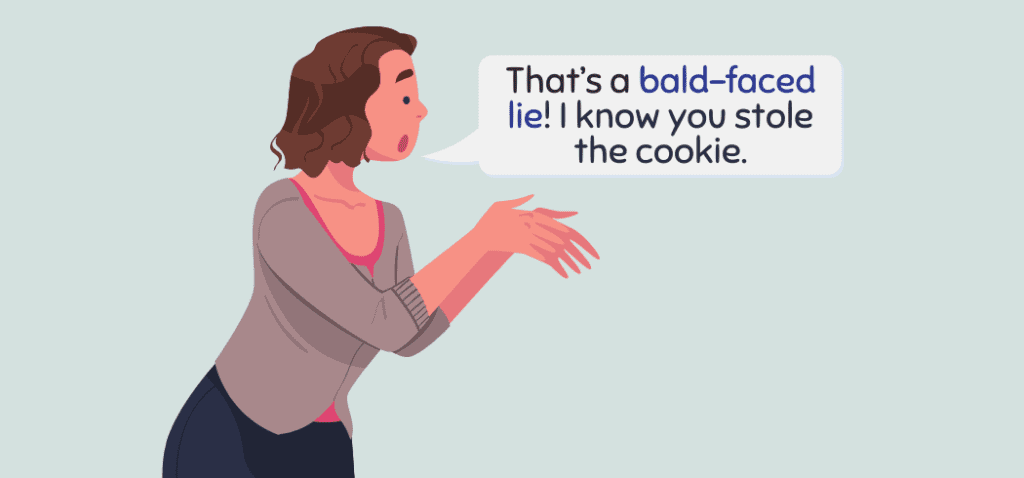Are you supposed to say “bald-faced lie” instead of “bold-faced lie”? Should you use a hyphen or not? All good questions, and ones I plan to answer in this quick guide to the phrase.
Is It a Bald-Faced Lie or a Bold-Faced Lie?
The correct phrase adjective you’re supposed to use is “bald-faced lie” if you’re planning to use it in a formal way or in publishing. But you’ll be happy to learn that you can use either form of the phrase and be correct.
You could even use a third, much older option, which is “barefaced lie.” All three of these are proper usage and widely accepted around the world. “Bald-faced” is just what most editors want to see.
Where Does the Saying Bald-Faced Lie Come From?
So, the term itself means a downright obvious lie. Dating back to the 1500s, the term “bold-faced” meant someone was brazen, and the phrase “bold-faced lie” came about to describe someone brazen enough to tell an obvious lie.
Shortly after, in the 16th century, the term “bald-faced lie” was added, not nixing the first form but becoming another way of saying it.
Bold-Faced or Bald-Faced?
There’s always been some debate over whether the phrase should be “bold-faced” or “bald-faced.” “Bold-faced” technically makes more sense because it describes someone brazen or daring in their bold lies.
But “bald-faced” is the form you’d use in formal writing, such as legal texts and scientific studies.
Should Bald-Faced Lie Be Hyphenated?
The answer is yes! “Bald-faced lie” should be hyphenated between the word bald and lie. It’s what we call a compound adjective to describe a certain type of lie. The same goes for “bold-faced,” and barefaced should be written as a single word.
What Is an Example of a Bald-Faced Lie?
A bald-faced lie is an untruth that’s blatantly and shamelessly an outright lie. Like, when my kid steals a cookie from the cookie jar right in front of me and says they never took it, that would be a bald-faced lie (or a bold-faced lie).
Bald-Faced Lie Synonyms
Synonyms are a great way to break up repetitive words and phrases in your writing. So, try some of these instead of using “bald-faced lie.”
- Bare-faced lie
- Shameless lie
- Brazen lie
- A bold-faced lie
- Big fat lie
- Audacious lie
- Impudent lie
- Obvious lie
Bald-Faced Lie Examples in a Sentence
- My husband told a bald-faced lie about his whereabouts last night because we both knew where he was.
- I can’t believe Karen had the audacity to tell such a bald-faced lie about dating my ex-boyfriend.
- The politician’s speech was filled with bald-faced lies, and the people knew it.
- That’s a bald-faced lie! I know you stole the cookie. It’s right in your hand!
- I feel so bad because I told a bald-faced lie to my father, and he didn’t say anything even though I knew he knew the truth.
Don’t Tell Bold-Faced Lies
So, there you go, grammar lovers! Bald-faced doesn’t just mean clean-shaven men. You can use bald-faced, bold-faced, or barefaced when talking about obvious lies. But if you’re worried about being technical, always go with bald-faced, and you’ll be golden!



Comments are closed.